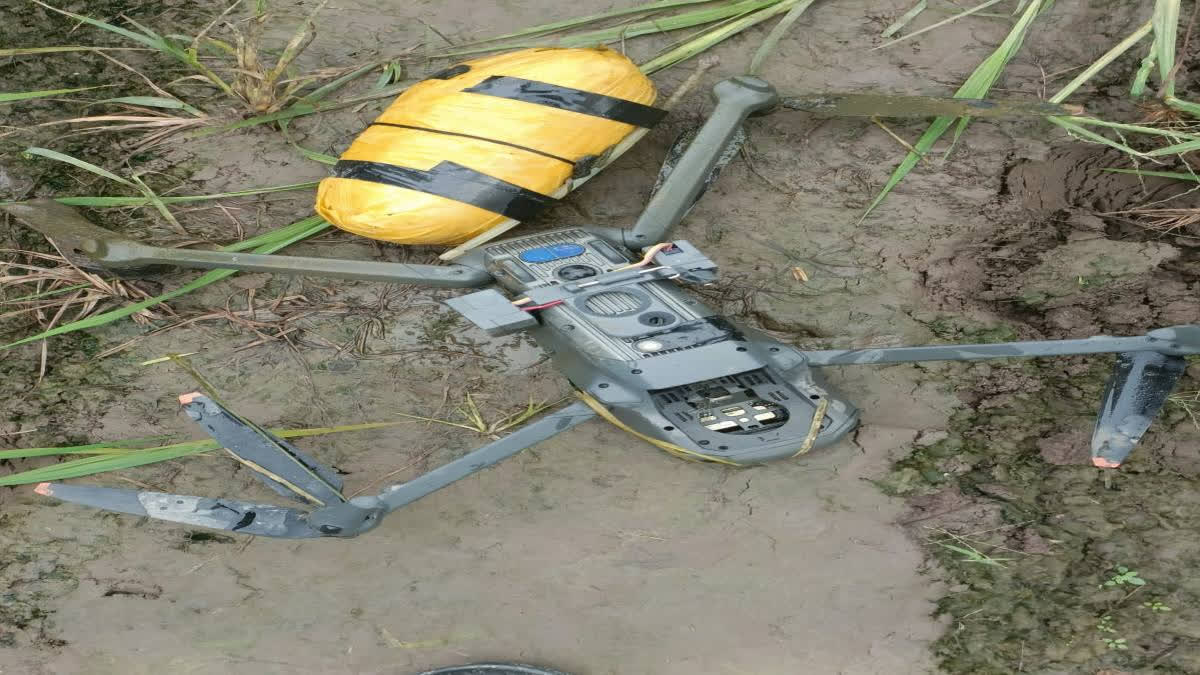New Delhi: The Union Home Ministry has asked Central Security Agencies, including the Border Security Force (BSF), Assam Rifles and Sashastra Seema Bal (SSB), to stay on maximum alert following intelligence reports that terrorist organisations in connivance with the drug mafias have been trying to smuggle drugs and psychotropic substances into India from across the border.
As per the government data, 605,841.01 kg of opium, 2,512,780.854 kg of cannabis, 2,292.319 kg of cocaine and 4,500.422 kg of psychotropic substances have been recovered from across the country in the last two years with Rajasthan, Madhya Pradesh and Jharkhand registering maximum recovery.
The law-enforcing agencies in Rajasthan, according to the government data, recovered 270,908.178 kg of opium between 2021 and 2022, followed by 19,459.96 kg of cannabis and 9.454 kg of psychotropic substances. Security agencies during the same period recovered 69,825.238 kg of opium, followed by 62,594.999 kg of cannabis and 5.627 kg of psychotropic substances recovered from Madhya Pradesh.
Similarly, security forces in Jharkhand also recovered 48,535.05 kg of opium, 9,586.705 kg of cannabis and 114.751 kg of psychotropic substances. Other States like Andhra Pradesh, Assam, Bihar, Gujarat, Haryana, Punjab, Uttar Pradesh, West Bengal and Jammu and Kashmir among others also registered recovery of opium, cannabis, cocaine and psychotropic substances during the same period.
Interestingly, security agencies in Manipur, which shares its border with Myanmar, recovered 28,408.648 kg of opium and 1,755.454 kg of cannabis.
“As most of the illegal drugs enter India from the international border, we have put security agencies mainly BSF, SSB and Assam Rifles on high alert to detect all such entry,” said a senior government official.
The official said that the BSF, which is manning the India-Pakistan and India-Bangladesh border, Assam Rifles manning the India-Myanmar border and SSB guarding India’s border with Nepal and Bhutan border have been put on alert.
For security agencies, the use of drones by drug mafias from the Pakistani side is a major challenge. “Huge quantities of drugs and other psychotropic substances also come into India through sea routes. And for this we have asked the Coast Guard, NCB and Navy to work together to fight the menace,” the official said.
It is worth mentioning that, while replying to a query in the Rajya Sabha on Wednesday, Minister of State for Home Nityanand Rai said that the Government of India has taken several measures to coordinate with international agencies and neighbouring countries to deal with cross-border drug trafficking.
“The Director General level talks are being held with neighbouring countries such as Myanmar, Iran, Bangladesh, Indonesia, Singapore, Afghanistan and Sri Lanka to resolve various issues on drug trafficking having international implications. Border Guarding Forces (BSF, Assam Rifles and SSB) have been empowered under the Narcotic Drugs and Psychotropic Substances (NDPS) Act 1985 to carry out search, seizure and arrest for illicit trafficking of narcotic drugs at the international border,” Rai said.
He informed that as a part of international cooperation, India has signed bilateral agreements with 27 countries, a Memorandum of Understanding with 16 countries and Agreements on Security Cooperation with two countries for combating illicit trafficking of Narcotic Drugs and Psychotropic Substances (NDPS) and Chemical Precursors as well as related offences.
Asserting that the drug-related field is dynamic and requires constant updation to strengthen the framework for regulation, Rai said, “Since 2014, 24 manufactured narcotic drugs and 56 psychotropic substances have been notified. Currently, 134 manufactured narcotic drugs, 173 psychotropic substances and 27 controlled substances in total have been brought under control, supervision and regulation within the strict regime of the NDPS Act, 1985.”
Read more: J&K: Banned Drugs Recovered In Rajouri, Peddlers Arrested



